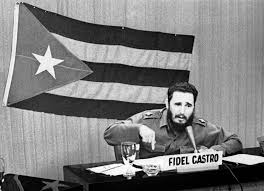
On July 26, 1953, a small band of Cubans launched a revolution by storming the Moncada Barracks in the city of Santiago, in Eastern Cuba.
Though that uprising failed to dislodge the dictatorship of Fulgencio Batista, it was the beginning of a movement that forever changed the world and Communism began spreading in the Americas and elsewhere.
Batista had originally taken power in the “Sergeants’ Coup” of 1933. He ruled Cuba behind the scenes for a while but made himself president in 1940. In his first term, Batista carried out relatively progressive pro-worker policies and thus was supported by the Cuban Communist Party and the labor unions.
After leaving power in 1944 and living in the United States for a while, Batista returned to Cuba and ran for president again in 1952. When he saw he was going to lose, he organized an armed coup d’état. The second time around, Batista ditched his former relatively progressive policies and showed himself as the corrupt and violent instrument of the Cuban and U.S. wealthy classes, and an enthusiastic ally of the Meyer Lansky wing of the Mafia. Thousands of political opponents were murdered and Cuba was left wide open for every kind of exploitation and vice.
When Batista was overthrown in 1959, Castro assumed military and political power as Cuba's prime minister. The United States came to oppose Castro's government and unsuccessfully attempted to remove him by assassination, economic embargo, and counter-revolution, including the Bay of Pigs Invasion of 1961.
Nowadays, a new movement of Evolution continues to grow among the people in Cuba but the communist dictatorship will not allow it to grow and break their decades of repression. During his nearly six decades of rule in Cuba, Fidel Castro built a system that punished virtually all forms of dissent, a dark legacy that lives on even after his death. https://cimages.me/content/Cuba-protests
Many thousands of Cubans have since been incarcerated in abysmal prisons, thousands more were harassed and intimidated, and entire generations were denied basic political freedoms. Cuba made improvements in health and education, though many of these gains were undermined by extended periods of economic hardship and by failed policies.
Years after Castro took over in Cuba, my parents took my two brothers and me to the USA, where many years later I was recruited by a Republican President to help lead the electronic Bay of Pigs. A battle that we sometimes won, but has never succeeded in the larger battle to overthrow Communism in Cuba. https://www.radiotelevisionmarti.com/ Radio Televisión Martí.